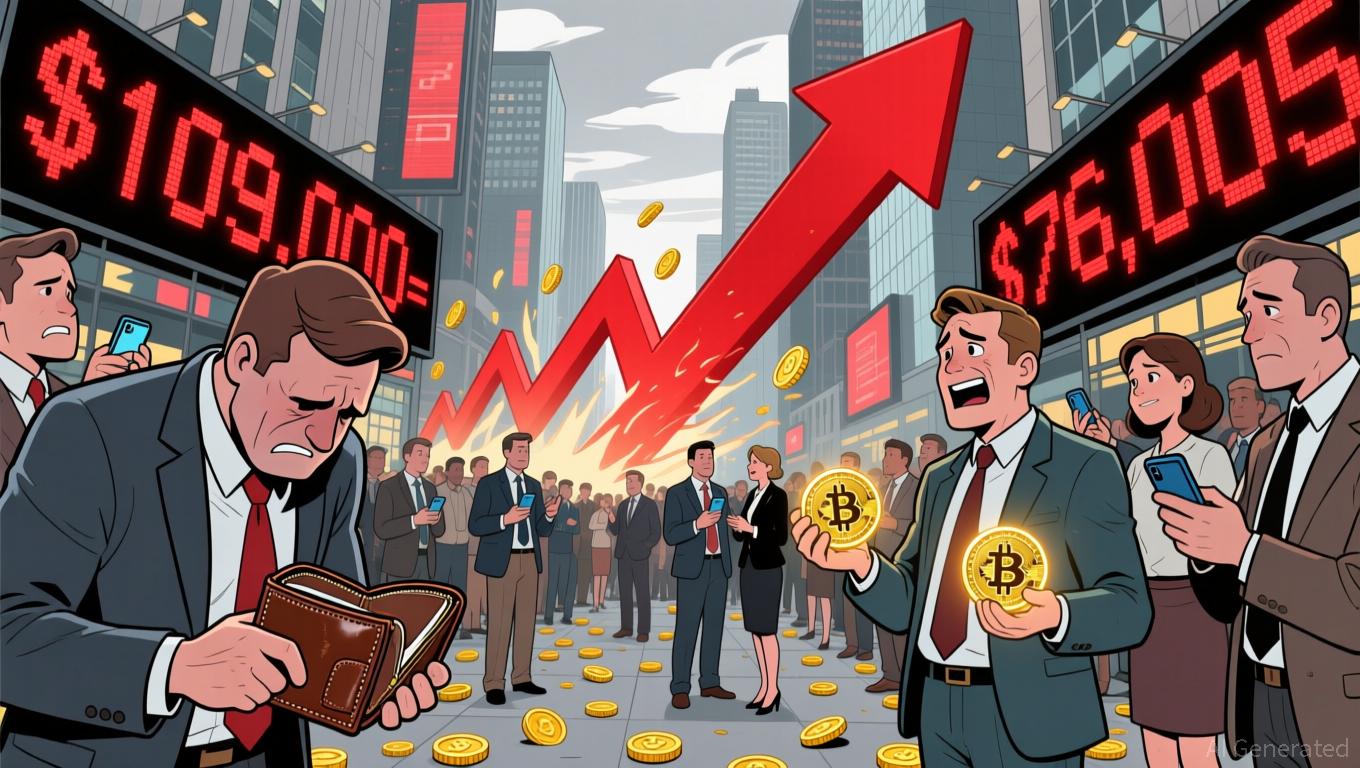Hong Kong Steps Up Global Stablecoin Oversight, Focuses on Competition with Tokyo
- Hong Kong regulators impose strict rules on stablecoin issuers, requiring fiat-collateralized tokens and a 25M HKD capital requirement. - Aligning with global trends, the rules aim to curb risks from algorithmic stablecoins but raise concerns about Hong Kong's competitiveness against rivals like Japan. - Japan's pro-crypto policies and incentives attract firms, while global players like Deutsche Börse integrate fiat-backed stablecoins into financial systems. - Hong Kong's framework mandates reserves and
Hong Kong's financial authorities have introduced strict regulations for stablecoin issuers, limiting them to only fiat-backed tokens and requiring applicants to have a minimum capital of 25 million Hong Kong dollars. This update, revealed by the city's stablecoin review tribunal,
Under the tribunal's new rules, which take effect immediately, stablecoin operators must fully back their tokens with fiat currency reserves,

The capital threshold, set at 25 million HKD (around $3.2 million), is meant to bolster financial stability but may discourage smaller companies from participating.
Major international firms are already adjusting to these regulatory shifts. Deutsche Börse Group and Société Générale's FORGE division have incorporated stablecoins backed by euros and dollars into their main market infrastructure, using regulated systems to improve settlement efficiency. These moves highlight the increasing role of fiat-backed stablecoins in institutional finance—a market Hong Kong hopes to lead.
However, obstacles remain. Japan's proactive efforts to attract crypto companies, including tax breaks and simplified licensing, are drawing interest from Hong Kong-based firms looking to expand. At the same time, U.S. sanctions and ongoing geopolitical issues are making it harder for Hong Kong to establish itself as a neutral center for digital assets.
The tribunal's ruling is in line with Beijing's broader goal of keeping a firm grip on financial innovation within its borders. While Hong Kong's clear regulatory stance may attract certain investors, the city's close ties to mainland China continue to be a source of uncertainty for global businesses concerned about geopolitical instability.
Disclaimer: The content of this article solely reflects the author's opinion and does not represent the platform in any capacity. This article is not intended to serve as a reference for making investment decisions.
You may also like
Bitcoin Updates: Bitcoin Drops 25% While ETFs Remain Stable, Underscoring Confidence from Institutions
- Bitcoin fell to $82,605 in Nov 2025, mirroring FTX-era losses with STHs holding 2.8M BTC at a loss. - ETF assets remain stable despite 25% price drop, showing institutional confidence amid retail distress. - Market corrections erased $120B in value, pushing total crypto cap below $2.8T as analysts warn of further declines. - Weak U.S. employment data and fading Fed rate cut hopes exacerbate fears of a potential $75K price target.

Abu Dhabi sovereign fund quintuples Bitcoin investment

Analysts Debate the Next Moves for BTC, Lower High or Lower Lows Ahead?

Bitcoin falls to $82,000, triggering nearly $2 billion in leveraged liquidations
